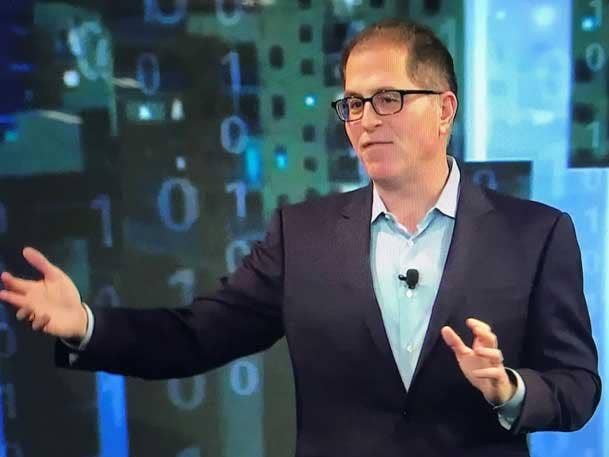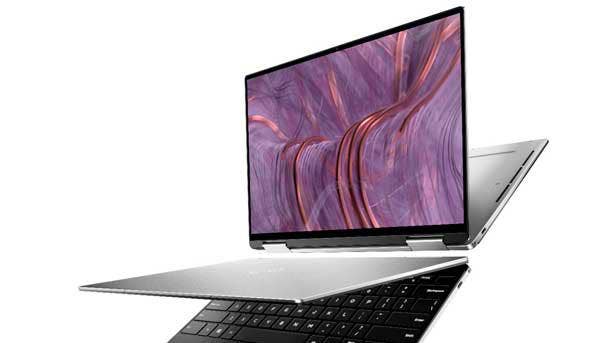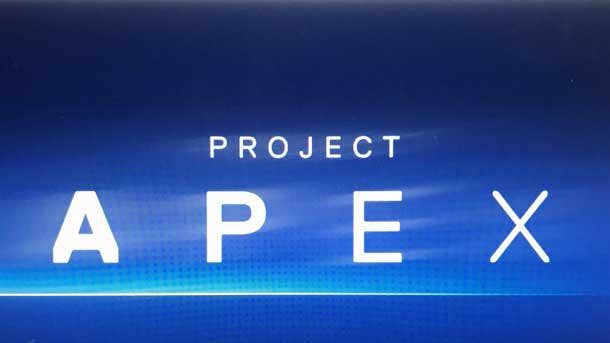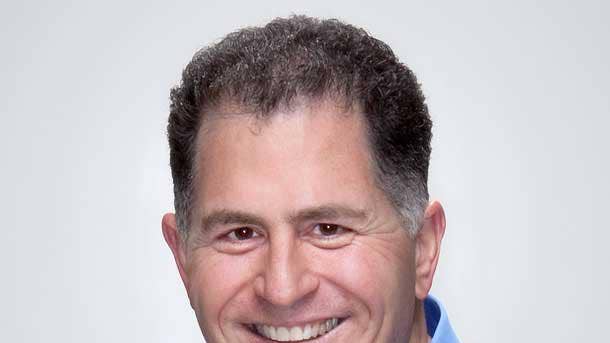Michael Dell: ‘Stronger’ VMware Integrations, PC Growth Ahead
IT legend and Dell Technologies CEO Michael Dell talks to CRN about his company’s future with VMware, Project Apex and whether PC sales can continue to soar.

Why Michael Dell Is Pumped About 2021
Dell Technologies record-breaking $94.2 billion fiscal year 2021 is just the beginning, according to company founder and CEO Michael Dell, with bullish plans in store for this year including an upcoming server launch.
“We have a pretty big server announcement coming up with respect to PowerEdge and our 15th generation here very soon. We’re excited about that,” said Dell in an interview with CRN.
The Round Rock, Texas-based infrastructure and PC giant increased its total annual revenue by 2 percent to $94.2 billion in fiscal year 2021, which ended Jan. 29, as Dell Technologies weathered the global COVID-19 pandemic better than many critics expected. Dell’s PC business delivered record annual sales of $48.4 billion as the company is flourishing in the new remote work and remote learning era.
Dell’s stock is currently trading at all-time highs of over $88 per share, representing a more than 200 percent increase since March 2020.
In an interview with CRN, Michael Dell speaks about continuing its tight partnership with VMware, why PC sales will increase in 2021 and Dell’s as-a-service vision with Project Apex.

How strong is the Dell-VMware alliance and partnership right now?
[It] continues to grow and get stronger. VMware had another strong fourth quarter. We continue to partner closely together on hyperconverged infrastructure, on multi-cloud, all the work we’re doing around storage and data protection, the edge.
There are 80 million VMware workloads in the world. Some portion of them have already moved into multi-cloud with VMware Cloud on AWS, at Azure, at Google Cloud, at Oracle, IBM, 4,000 other partners -- and increasingly, customers are making that journey to embrace VMware Cloud Foundation as the multi-cloud framework. Customers are selecting Tanzu as the application development environment that allows them to develop apps in a location-agnostic way, especially now including the edge. We’re doing a lot of work with Nvidia with the AI-ready platform. There’s a lot on the agenda for VMware and Dell Technologies together.
What type of new CEO does VMware need to continue the Dell-VMware relationship?
To be clear, that’s not the only role of the VMware CEO. So I don’t want to over-index that. As we’re in the middle of the VMware CEO search, let me say, we have lots of great candidates. Stay tuned.

Can Dell’s PC sales continue to surge or has the market reached its limit as many organizations have already implemented work-from-home initiatives?
We believe the PC demand environment will continue to improve, it’s already off to a strong start. Hey, it’s the roaring twenties. The estimates by both [market research firms] IDC and Gartner see IT spending growing at mid-single digits. Certainly, they see growth in core PCs, servers and storage.
It used to be that you would leave your house to go to work or to school or to the store or to entertainment. Now, people have – even as we can now see the other side of the pandemic – people have learned behaviors of the new digital world. It’s work from anywhere, do from anywhere – that world is here to stay. I believe the available opportunity for us is expanding.
There still are millions of children around the world who still need PCs, we estimate 16 million in the United States alone don’t have either the right device or right kind of access. Right now, there’s a lot of focus on infrastructure at the federal government level and that includes broadband infrastructure, particularly rural broadband. There will be great opportunities continuing this year and beyond. We continue to invest in innovation, and we’re focused on the whole workforce enablement, but also technologies like cloud, 5G, AI and all of that gives people much greater flexibility to work and play from anywhere.

What’s your vision for Dell’s bullish as-a-service strategy with Project Apex this year?
There’s clearly a broad trend towards subscription and as-a-service in the industry. We’ve heard loudly and clearly from end customers that they’re looking for more consumption-based models. We entered the year with a record $30 billion of deferred revenue, and while Apex is a huge focus for us and driving the business in that direction, we already have a lot of experience as witnessed by the $30 billion in deferred revenues.
Hybrid IT is definitely the major theme as customers think about infrastructure, it’s multi-cloud. Evolving all of our offerings into a consumption model allows us to provide greater outcomes to customers faster and aligns us more closely with the requirements inside customer’s businesses. We believe it’s essentially a better business model for us to operate going forward. We’re all-in on this. You’ll hear more about this at our Dell Technologies World on May 5 and May 6 both in the partner summit and on the main stage.

In terms of Dell Technologies’ 2030 goals, how many women will make up the company’s workforce?
We set an ambition to have 50 percent of our workforce be women by 2030 and 40 percent of our leaders, at least, be women.
First of all, we all know the industry is continuing to grow, it’s a big economic engine around the world. So it needs talent and overlooking, or not fully giving opportunities to all the talent, would be a huge mistake. We’ve also seen through this last year, cracks exposed in our society for women and underrepresented minorities. It’s a responsibility for companies like ours to create those opportunities. A decade ago we set big goals for 2020, we achieved a significant majority of those. Now we’ve set even bigger goals for 2030.
You see more and more companies voluntarily set big ambition like this. VMware has also done something very similar. Its purpose and profits. People want to be part of an organization that makes a difference in the world, not just through the great technologies and products and services they provide, but also through the opportunities that the business creates. That’s how we lift everyone up and create a better world. We believe that’s part of our job.

Michael, you’re known to have foresight and the ability to successfully make large moves – from buying EMC to taking Dell public. You recently created a SPACand have plans to spin off Dell’s majority stake in VMware potentially later this year. Talk about having a ‘Michael Dell’ mindset?
I’ve been doing this for 37 years. The answer is, when you think about a business like ours or the opportunities in front of us, you have to focus in multiple timeframes. There’s the immediate, ‘What needs to happen right now to operate the business, to meet the demands, to deliver for customers and growth with our partners, and build the business?’ -- all of that.
But you also sort of have to see around the corners: what are the big trends, how are things evolving -- because things don’t stay the same, new technologies are emerging all the time -- and what do we need to do to continue to position the company for success in three years, five years, ten years. So long-range planning and also making investments that won’t benefit us in the near-term, but if they’re successful, it will benefit us in the medium- and long-term. So it’s about having that horizon and ambition. We talk a lot about 2025 and 2030 for a reason. Because if you’re only focused on the next couple of weeks in front of you, you’re going to miss a lot of opportunities.